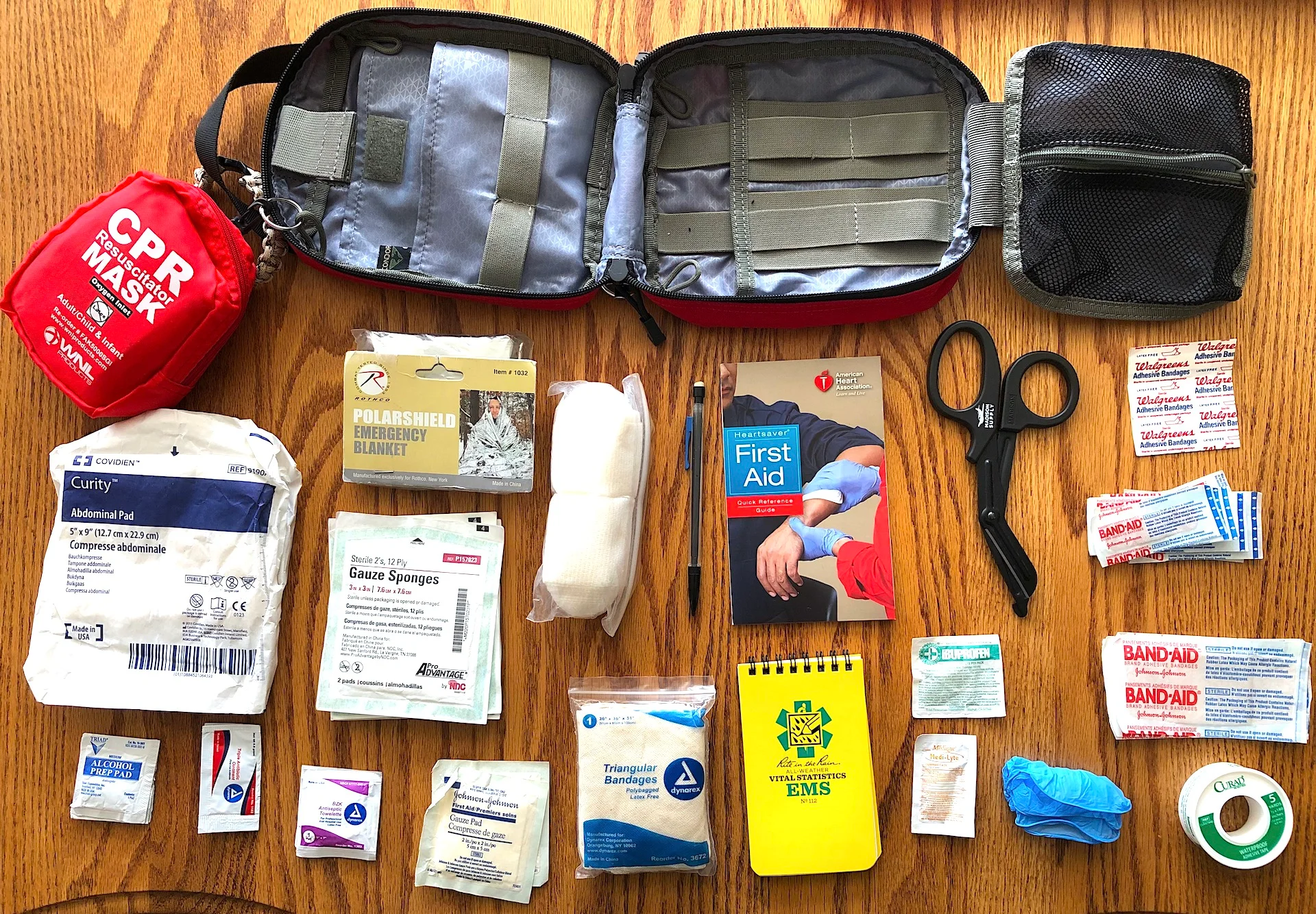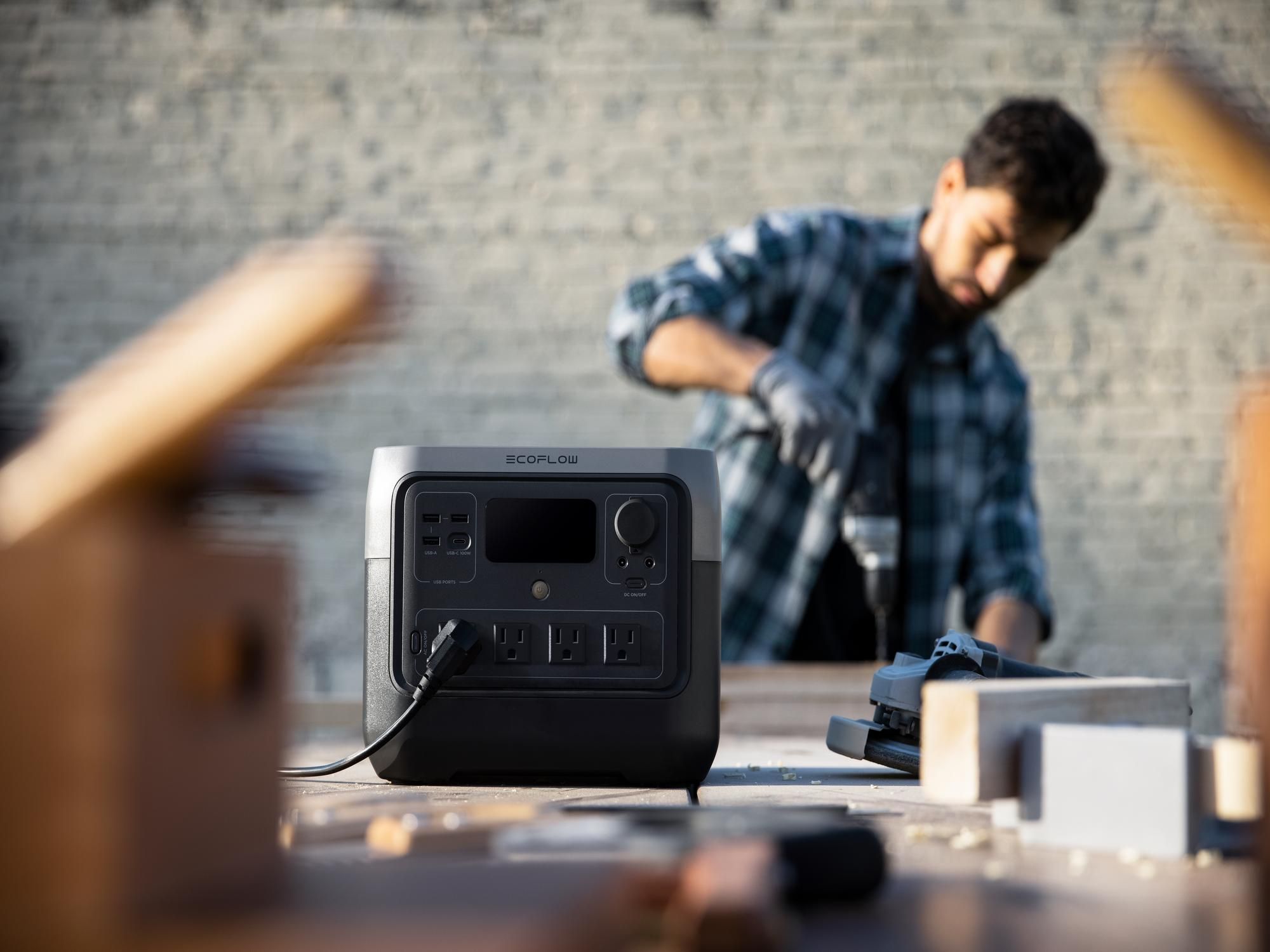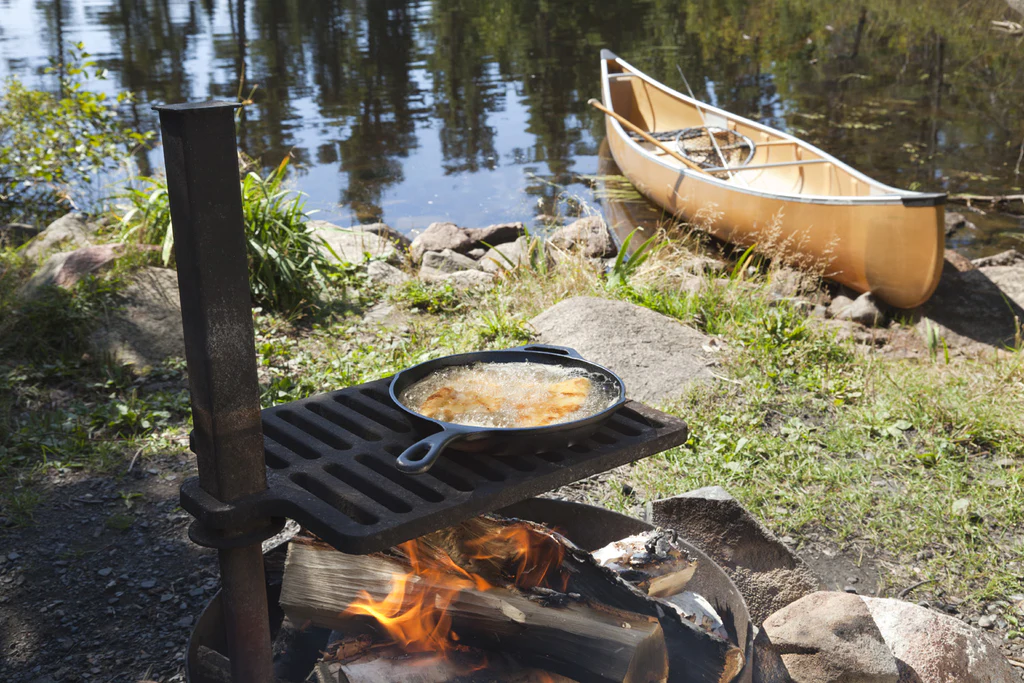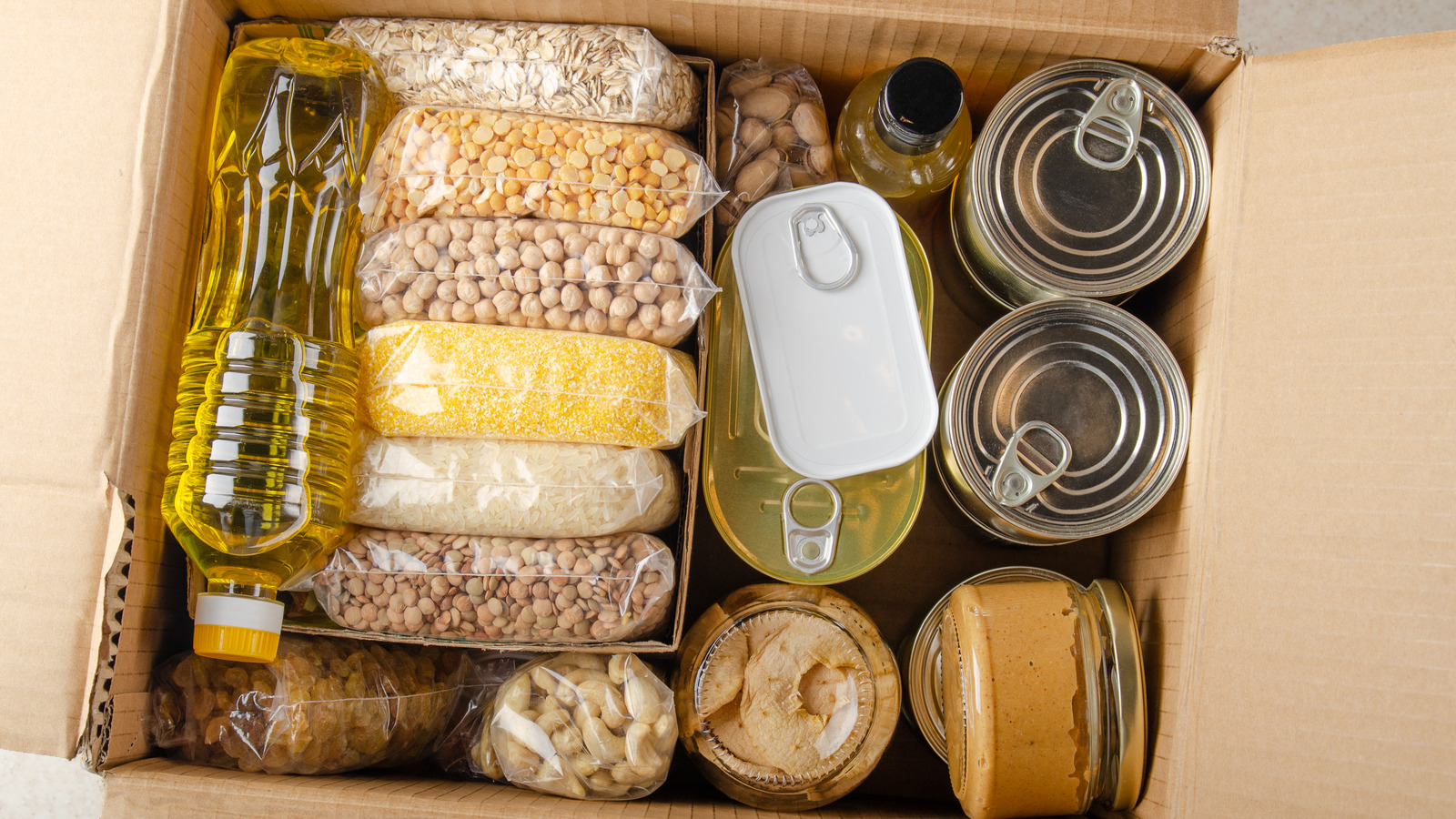In unexpected situations, having the right tools is crucial. It’s how we ensure our safety and well-being, as well as that of our loved ones. Instead of feeling overwhelmed, we can take charge by having a plan and choosing the right tools for the job. In this case, we’re talking about reliable emergency medical and safety equipment.
So, which safety and medical equipment is right for your home? Well, that depends on your needs. To help you make an informed decision, we’ve put together a list of excellent options for emergency safety and medical equipment. We’ve even included links to make it easy for you to get what you need. Take a moment to think about which tools would be most useful for you and your family.
Come with us as we explore the world of top-notch emergency medical and safety equipment:
Portable, compact, complete first-aid kid

A portable first-aid kit is a must-have during emergencies because it contains essential items for dealing with injuries. It includes things like bandages, antiseptic wipes, and tweezers, among other items. Having this kit on hand allows you to quickly treat cuts, burns, or scrapes, preventing infections and easing pain. Think of it as a medical superhero in your pocket, ready to respond when accidents happen. This kit is especially handy during trips, vacations, or even at home. It gives you peace of mind, knowing that you’re prepared to handle injuries promptly. Whether it’s a minor cut or a burn, your first-aid kit offers immediate care, helping you or anyone in need stay safe and comfortable. Its small size makes it easy to carry around.
Amazing, multipurpose home fire extinguisher

A multipurpose home fire extinguisher is essential for safety. It’s designed to put out different types of fires, like those caused by cooking oils, electrical issues, or paper. With a simple squeeze, it releases fire-suppressing chemicals to control flames. This extinguisher acts like a guardian, ready to tackle fires and stop them from spreading. It’s crucial for homes, where fires can start without warning. By keeping it within reach, you’re prepared to respond quickly to a fire emergency. It’s a proactive measure to protect your family, property, and personal belongings. Even a small fire can escalate into a disaster, but with this extinguisher, you can prevent fires from getting worse. Its versatility and user-friendly design make it a valuable tool for any home. Remember, being prepared is the first line of defense against fire hazards.
Disinfectant spray and wipes
Disinfectant spray and wipes are valuable tools for maintaining cleanliness and a germ-free environment, especially during emergencies. They work by getting rid of germs and bacteria on surfaces, which is crucial when hygiene becomes a top priority during emergencies.

Think of disinfectant spray as a magical mist that you can spray on things like doorknobs, tables, and countertops. It helps eliminate harmful microorganisms that could potentially cause illnesses. A few sprays can go a long way in preventing the spread of germs.

Wipes offer another practical solution. Imagine them as moist cloths soaked in disinfectant. You can use them to clean surfaces or objects that are frequently touched, like your phone or remote control. These wipes make cleaning tasks convenient and straightforward.
During emergencies, when there might be chaos or uncertainty, having disinfectant spray and wipes on hand helps maintain a clean and hygienic environment. They can reduce the risk of getting sick and prevent the transmission of diseases to others.
Remember, emergencies can bring unforeseen challenges, so being prepared is a wise choice. Disinfectant spray and wipes are part of that preparedness, ensuring that you can keep your surroundings clean and hygienic.
Rubbing alcohol

Rubbing alcohol is a handy liquid for various situations, including emergencies. It’s a powerful cleaner and disinfectant that’s great for sanitizing wounds and surfaces.
If someone gets injured and has a cut or scrape, rubbing alcohol can be used to clean the wound. It helps kill germs that could lead to infections, which is crucial for faster healing.
Additionally, it’s suitable for disinfecting items like doorknobs, phones, and other things that get touched frequently. This is especially important during emergencies to prevent the spread of germs.
Rubbing alcohol can also be used to clean medical tools or instruments, ensuring they remain germ-free.
Having rubbing alcohol readily available during emergencies is incredibly useful. It’s a versatile liquid that helps you maintain cleanliness and safety for both yourself and your environment. Just remember to use it carefully and only on appropriate items, like wounds or surfaces that need disinfection.
Medical gloves

Medical gloves act as protective layers for your hands and play a significant role in emergency preparedness and safety. Doctors, nurses, and even individuals during emergencies use these gloves to keep their hands clean and safe.
There might be situations where you need to assist an injured person during emergencies. Wearing medical gloves ensures safety for both you and the injured individual. They prevent germs from contaminating your hands and being transmitted to others.
If someone is bleeding or has a wound, wearing gloves helps you avoid direct contact with their blood, which could potentially carry diseases. Think of them as a barrier that protects you from possible harm.
Medical gloves are useful for administering first aid or handling medical supplies. They ensure that anything you touch stays clean and sterile, reducing the risk of infection.
Having a box or two of medical gloves in your emergency kit is a smart move. They’re easy to use and add an extra layer of protection when dealing with germs or bodily fluids.
Medical masks

Medical masks are special coverings for your mouth and nose. They’re incredibly important, especially in the era of COVID-19 and amid discussions about mysterious biolabs. These masks are used by doctors, nurses, and everyday people to stay safe and prevent the spread of germs.
During emergencies, illnesses can spread through the air when someone coughs or sneezes. A medical mask can help prevent those germs from contaminating the air or reaching your hands or face.
Masks also offer protection when you’re near a sick person. They act as a barrier, keeping tiny germs away.
Including medical masks in your emergency kit is a smart decision. They’re easy to wear and can significantly help stop the spread of diseases. Remember, wearing a mask not only protects you but also contributes to the safety of others.
Stock Up on Prescription Medications
Having an ample supply of your prescription medicines is crucial, especially during emergencies. “Stocking up” means having extra medicine on hand, which is helpful when it’s challenging to access a pharmacy. A generous supply ensures you won’t run out of your medications and can continue with your necessary doses. Always check the expiration dates and store them securely. Being prepared with an adequate supply of prescription medications promotes better health and equips you to face any situation that arises.
Additionally, there are some common over-the-counter medications to keep stocked at home, including:
| Medicine | Description |
| Ibuprofen (Advil, Motrin) | Important for relieving pain, reducing fever, and managing inflammation. Useful for headaches, muscle aches, and minor injuries. |
| Acetaminophen (Tylenol) | Essential for pain relief and reducing fever. It’s a go-to medication for various ailments, including headaches and fever. |
| Antihistamines (e.g., Benadryl) | Crucial for treating allergies and allergic reactions. They help alleviate symptoms like sneezing, itching, and runny nose. |
| Cough Suppressants (e.g., Dextromethorphan) | Useful for controlling persistent coughs and providing relief from irritating coughing fits. |
| Decongestants (e.g., Sudafed) | Important for relieving nasal congestion due to colds or allergies, making breathing easier. |
| Antacids (e.g., Tums, Rolaids) | Vital for alleviating heartburn, acid indigestion, and upset stomach. They neutralize excess stomach acid. |
| Oral Rehydration Solution (e.g., Pedialyte) | Essential for preventing dehydration during bouts of diarrhea or vomiting, especially in children. |
| Hydrocortisone Cream | Useful for reducing itching, redness, and inflammation associated with skin irritations, rashes, or insect bites. |
| Antibiotics (prescribed by a healthcare professional) | Important for treating bacterial infections, such as strep throat, urinary tract infections, or skin infections. Always use antibiotics as prescribed by a doctor and finish the entire course to prevent antibiotic resistance. |
These tools will help keep you safe during emergencies. Your safety is important to us, and we appreciate your attention to these recommendations – stay prepared!
Also Read: Our Top Choices: The Best Emergency Lighting Devices




